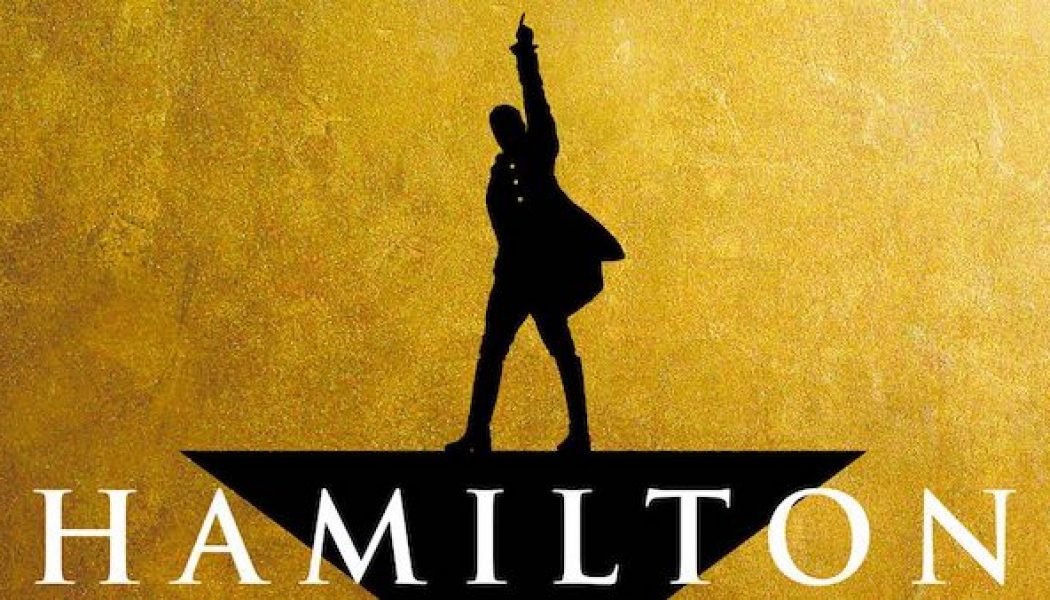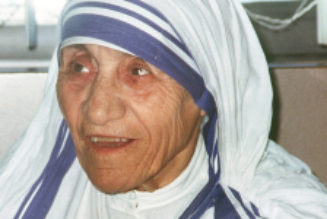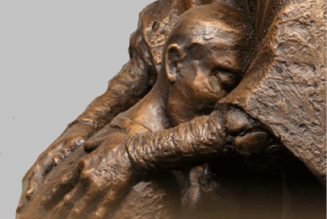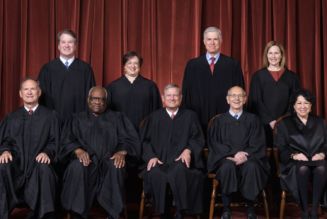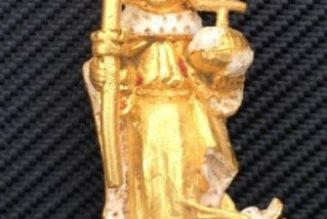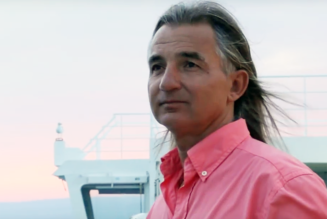
Like a lot of people with a pulse, I saw “Hamilton” this weekend. (Spoiler alert: everything you’ve heard is true. Lin-Manuel Miranda is a quadruple-threat talent and a genius and let’s just leave it at that.) When it was over, I found myself wondering about the title figure’s religious faith. Our friends at Wikipedia offer this interesting nugget — which also explains some of what happened at the end of life, which isn’t mentioned in the show:
Stories were circulated that Hamilton had made two quips about God at the time of the Constitutional Convention in 1787. During the French Revolution, he displayed a utilitarian approach to using religion for political ends, such as by maligning Jefferson as “the atheist,” and insisting that Christianity and Jeffersonian democracy were incompatible. After 1801, Hamilton further attested his belief in Christianity, proposing a Christian Constitutional Society in 1802 to take hold of “some strong feeling of the mind” to elect “fit men” to office, and advocating “Christian welfare societies” for the poor. After being shot, Hamilton spoke of his belief in God’s mercy.
On his deathbed, Hamilton asked the Episcopal Bishop of New York, Benjamin Moore, to give him holy communion. Moore initially declined to do so, on two grounds: that to participate in a duel was a mortal sin, and that Hamilton, although undoubtedly sincere in his faith, was not a member of the Episcopalian denomination. After leaving, Moore was persuaded to return that afternoon by the urgent pleas of Hamilton’s friends, and upon receiving Hamilton’s solemn assurance that he repented for his part in the duel, Moore gave him communion. Bishop Moore returned the next morning, stayed with Hamilton for several hours until his death, and conducted the funeral service Trinity Church.
Hamilton also had an interesting, supportive, relationship with Catholics:
As an officer and aide to George Washington in the Continental Army, Hamilton himself fought alongside Catholics, who were welcomed into the ranks. Immediately after the war, he served in the Continental Congress with the Catholic delegates Daniel Carroll of Maryland and Thomas Fitzsimons of Pennsylvania, both of whom shared his belief in the necessity of a strengthened national government. Those experiences helped to bring Hamilton to a more mature position regarding the alleged Catholic threat to the United States. Americans in the centuries since have also found that working with those of other religions and faith traditions in the service of a common goal could produce a more genuine pluralism.
…When the forerunners of the Anti-Federalists in New York sought to pass a law in January 1787 requiring all voters to renounce their allegiance to “foreign ecclesiastical authority,” Hamilton rushed to the defense of Catholics, the clear target of the legislation. If enacted, this would have in effect re-established the exclusion of New York Catholics from politics that had prevailed since the 1690s. Hamilton and others from New York City—where the state’s first Catholic Church, St. Peter’s, was opened in 1786 after the ban on the open practice of their religion by Catholics had been lifted—denounced the bill as nothing short of religious bigotry. He argued that forcing Catholics to renounce their connection to the papacy would needlessly and foolishly weaken their bonds to New York and the United States. Hamilton also dismissed fears of Catholics as being based on centuries-old perceptions. He asserted that New York Catholics of the late 18th century were “unencumbered with that dangerous fanaticism which terrified the world some centuries back, but which is now dissipated by the light of philosophy.” Hamilton had struck a blow not only for Catholics but for members of all religious communities deemed by some to be suspect and outside the authentic political community.
In “Hamilton,” there is no explicit mention of Alexander’s religious faith. (Although Ron Chernow’s acclaimed biography, which was Miranda’s inspiration, details how Hamilton displayed “genuine religiosity” in his later years, praying and reading the Bible.) Near the end of the musical, Hamilton sings about an almost unbearable sorrow after the death of his son:
I spend hours in the garden
I walk alone to the store
And it’s quiet uptown
I never liked the quiet before
I take the children to church on Sunday
A sign of the cross at the door
And I pray
That never used to happen before.
The same song underscores one of the show’s most beautiful and searing scenes, when Eliza, Hamilton’s wife — after being subjected to scandal and infidelity — offers her heartbroken husband an act of grace in a moment of grief:
[COMPANY (EXCEPT HAMILTON AND ELIZA)]
He is trying to do the unimaginable
See them walking in the park, long after dark
Taking in the sights of the city[HAMILTON]
Look around, look around, Eliza[COMPANY (EXCEPT HAMILTON AND ELIZA)]
They are trying to do the unimaginable[ANGELICA]
There are moments that the words don’t reach
There is a grace too powerful to name
We push away what we can never understand
We push away the unimaginable
They are standing in the garden
Alexander by Eliza’s side
She takes his hand[ELIZA]
It’s quiet uptown[COMPANY (EXCEPT HAMILTON AND ELIZA)]
Forgiveness. Can you imagine?
Forgiveness. Can you imagine?
If you see him in the street, walking by her
Side, talking by her side, have pity
They are going through the unimaginable.
I’m not the only one to be gobsmacked by that moment — or by the quiet spiritual dimensions of Hamilton’s life.
Susan VanZenten, dean of Christ College, noted:
Chernow’s description of the final days before the duel with Burr emphasizes Hamilton’s personal and spiritual preparation. The night before the encounter, Hamilton wrote Eliza that he could not bear to kill another human being and that the “scruples of a Christian” had convinced him to expose his life to Burr: “This must increase my hazards and redoubles my pangs for you. But you had rather I should die innocent than live guilty.” This final state of grace unmistakably emerges during the spectacularly staged climax of the musical. The honorable Hamilton points his gun to the sky, but as Burr’s bullet speeds toward him, time stops and the rest of the company are frozen in place as Hamilton sings of his death and wonders about his legacy. As his “time’s up,” he receives a glimpse of “the other side,” where his mother, Philip, Laurens, and Washington are waiting.
“You want a revolution? I want a revelation.”
The final moments of the musical are, honestly, a revelation. (Early in the musical, Eliza’s sister, Angelica, sings: “You want a revolution? I want a revelation!” and boy, do we get it.) The revelation is that the real hero named Hamilton turns out to be Mrs. Hamilton. After her husband’s death, despite everything that has happened, Eliza works tirelessly to keep his legacy alive.
The conclusion of the show asks, “Who Lives, Who Dies, Who Tells Your Story,” and Eliza is really the one who tells Hamilton’s story. She is revealed as the one who made everything that has come before possible:
[ELIZA]
I stop wasting time on tears
I live another fifty years
It’s not enough[COMPANY]
Eliza[ELIZA]
I interview every soldier who fought by your side[MULLIGAN/LAFAYETTE/LAURENS]
She tells our story[ELIZA]
I try to make sense of your thousands of pages of writings
You really do write like you’re running out of—[ELIZA AND COMPANY]
Time[ELIZA]
The Lord, in his kindness
He gives me what you always wanted
He gives me more—[ELIZA AND COMPANY]
Time
In the final seconds, Eliza looks heavenward and gasps, and the lights dim. My wife asked me, “What did she see?” (By this time, after two-and-a-half hours, my allergies had kicked in and I couldn’t stop sniffling and blinking. Damn allergies.) “I think she saw Alexander,” I replied, rubbing my eyes. “He was waiting for her.”
Which brings me to one more element of faith in “Hamilton” — and one that is fundamentally Catholic. It is the notion of memento mori — a continual and constant reminder of our own death.
Sister Theresa Aletheia Noble has — literally — written the book on this subject and she notes:
In today’s world of fake news and the degradation of reason, we can so easily become detached from the value and the reality of our metaphysical existence. People are very easily led astray and make bad choices if they do not understand the value of their lives and the shortness of existence. Amid so much upheaval culturally and politically, remembrance of death is a practice that can help people to remain hopeful and rooted in the truth.
Why would one not make decisions in light of the end of one’s life? People who decide whether or not to get married don’t say, “Let’s not think about it. Maybe we’re compatible, maybe not. Let’s just think about cuddly puppies and butterflies and everything will be fine.” Death is a reality of human life. A reality that every single person is going to face, whether he or she is prepared or not. A reality that you or I might face tomorrow. Each person must choose his or her response to this reality. Am I going to ignore death and allow my repressed fears to seep out the seams of my life and move me to make bad choices? Or am I going to face death, accept it, meditate on it, and really try to understand what this reality means for my life? I believe that anyone who really wants to live a life worth living will do the latter.
What does this have to do with “Hamilton”? Everything.
Alexander Hamilton was stalked by death, from the very beginnings of his life. His mother died when he was young and a cousin he lived with later committed suicide. He lived as if every moment mattered; there was no time to waste. “I’m not throwing away my shot,” he sings:
[HAMILTON]
I imagine death so much it feels more like a memory
When’s it gonna get me?
In my sleep? Seven feet ahead of me?
If I see it comin’, do I run or do I let it be?
Is it like a beat without a melody?
See, I never thought I’d live past twenty
Where I come from some get half as many
Ask anybody why we livin’ fast and we laugh, reach for a flask
We have to make this moment last, that’s plenty.
Part of Lin-Manuel Miranda’s genius lies in taking that germ of an idea and transforming it into a transcendent work of art that not only moves us, but challenges us.
A lot of people have talked about how “Hamilton” speaks to our times, and it does — but maybe not the way we expect.
During a pandemic, when illness and death dominate the headlines, more of us are looking at the elusiveness of time — and the limits of life. “Who lives, who dies, who tells your story?” is more than a musical finale. It’s a question for every one of us — the question Miranda asks us to carry with us after the story ends.
Life is short. What will we do with it?
And that question is, for Catholics, a question of faith. For some, perhaps, it is a question of mission.
Miranda’s answer, I think, is a call seize the day. Don’t throw away your shot.
Or, put in a way that every Catholic will understand: Remember you are dust.
Who knew someone could write a smash musical about that?
